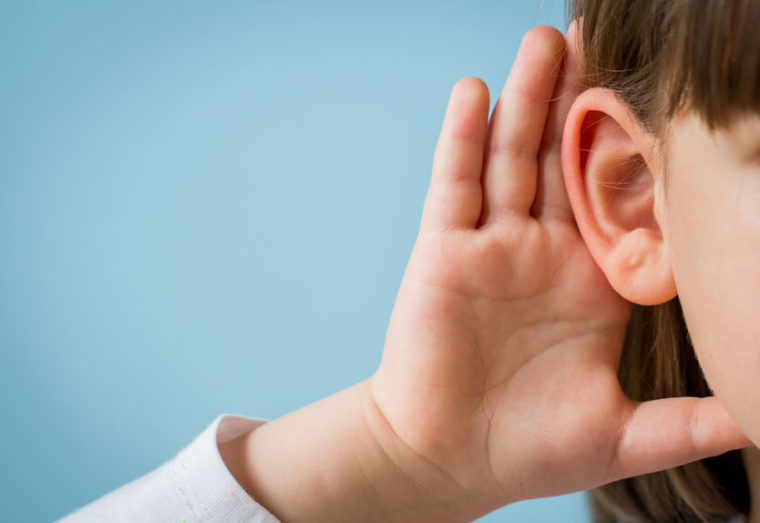Learning from oral instructions and explanations is a fundamental skill required throughout life.

Almost everything you do includes speech, language and communication. Your child’s learning depends on communication. One of the foundational skills to take in, understand, process and use language is auditory memory.
What is auditory memory?
Auditory memory is the ability to take in spoken information, process it, store it in your mind and then recall the information when you need it. A great amount of what is taught in schools is done through auditory channels.
The underlying skills required are attending, listening, processing, storing and recalling.
The child who struggles with auditory memory will miss out on a large percentage of teaching.
Dyslexic children demonstrate a significant deficit in auditory memory skills.
Why is auditory memory important for learning?
Auditory memory plays a crucial role in literacy. It directly affects spelling, reading, writing and math skills. When a child first enters school, she has to learn the names and sounds of the letters of the alphabet. She will use her auditory memory to do this, so this skill affects learning. Without it, language development would be impossible. In fact, it would be difficult for her to perform almost any activity.
Auditory memory requires working memory.
How can you tell if your child has trouble with auditory memory?
Children with weak auditory memory skills are unable to remember and apply crucial information in order to move to the next step of a task. They may have trouble:
- Following spoken instructions
- Remembering information presented orally
- Relating new information to prior knowledge
- Recognizing sounds and matching them to letters
- Understanding what they read
- Understanding what they hear
- Copying from the board
- Taking notes while listening
- Spelling correctly
- Learning vocabulary
How can you help your child develop auditory memory skills?
As with most other skills, auditory memory develops as children grow. Ig your child’s skills are deficient, you can her.
Here are some strategies you can use to teach your child to improve her auditory memory:
- Provide a good listening environment
- Turn off the television and reduce background noise when it’s time to have a conversation or engage in other listening activities.
- Verbal rehearsal
- Have your child repeat a list out loud. It could be objects, pictures, words, numbers, or directions. As time progresses, let him repeat the list to himself in a whisper, then finally not say it audibly at all.
- Paraphrasing
- Teach your child to look at the person who is speaking, focus her attention on the person and think about what they are saying. Immediately afterward, use different words to summarize the message.
- Chunking
- Break down sentences and instructions into smaller pieces. This works especially well for numbers.
- Linking
- Teach your child to make connections to other things he already knows about.
- You can play the shopping game, “I went to the store and I bought…” one item. Have your child repeat the phrase, saying what you bought, then adding one item to the list. Start with a few rounds and keep adding to them. You can make lists of associated items at first, then move to random items.
- Play auditory memory games
- Picture or word bingo, where the child has to listen and remember the word in order to cover the picture or word on her card.
- Sequence memory – list items and have your child repeat them back to you in the correct order. You can use numbers, words, etc. Start off with a short list and keep increasing the number of items, as your child improves.
- Posture
- Make sure your child maintains proper posture. The entire body is involved in listening.
If you’ve heard the saying, “In one ear and out the outer,” this is close to what happens to the child with poor auditory memory. This learning skill is frequently overlooked but has lasting consequences on the child’s success in school and life.
When you make learning fun, your child will learn the concepts taught and develop the skills you wish to strength faster and without resistance.
What strategy can you add to improve auditory memory?

I love your strategies. I find that those things help me now that I have aphasia. The most important is to have a quiet environment. We are so used to having the tv on.In order to really listen we should turn it off.
Yes, Cheryl, auditory memory strategies are not just for children. They work for adults too, especially those of us who are auditory learners. We are so tuned in to sound, any noise outside what we are focusing on distracts.
Loved this list and I realize that I inevitably did this when I was younger, and asked my kids to develop these.
The linking and memory games were some of the games we often played when we were kids… and I made my kids play this on road trips for a long while ..
Those of us who were privileged to grow up in the old day, have the benefit of playing many of the games here. Sadly, with the influx of electronic gadgets, children today rarely engage in this type of play.